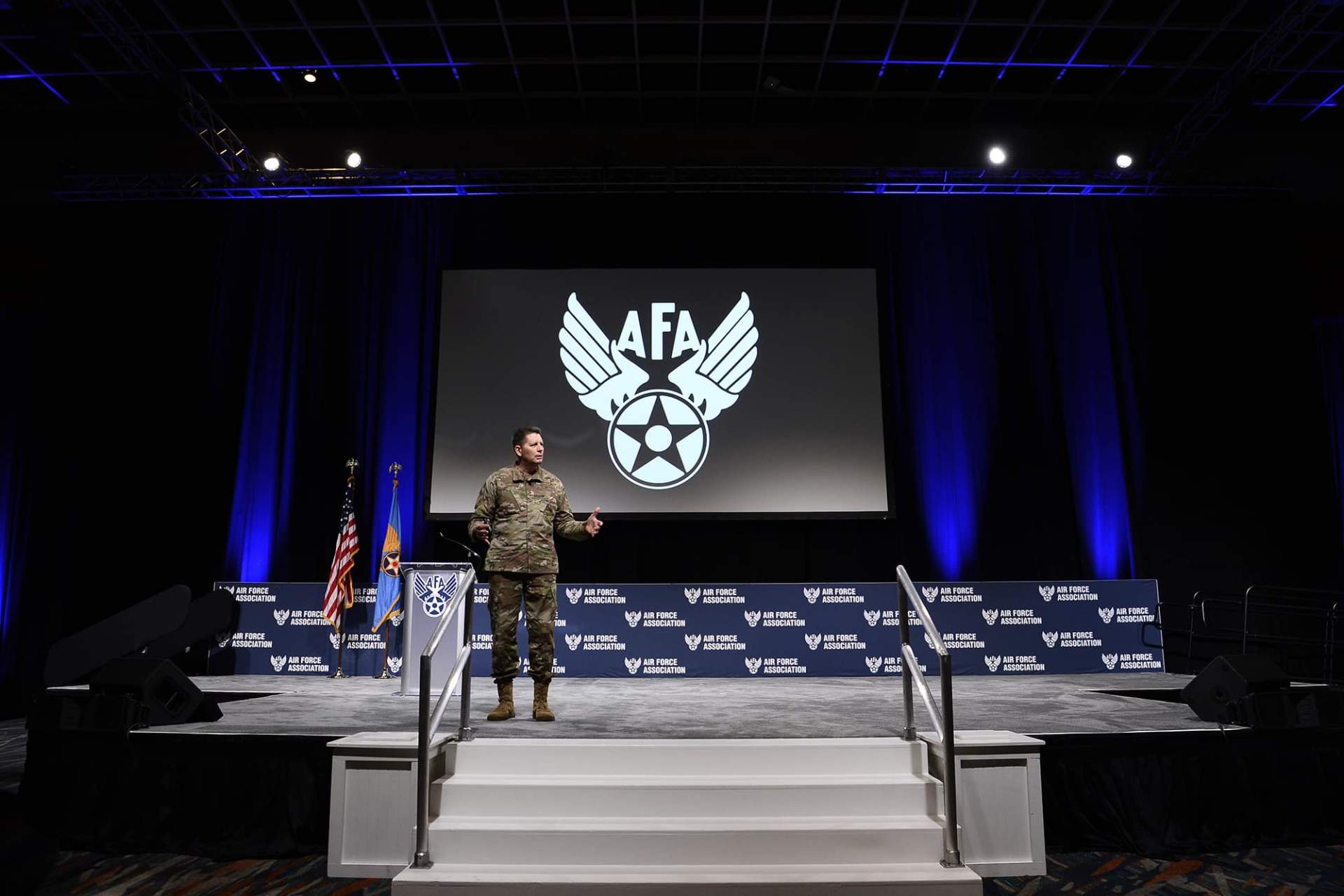Space Force Official Hints at New Defensive Capabilities

Space Force Vice Commander Lt. Gen. David Thompson told lawmakers March 4 the service has started testing new tools built to defend American assets on orbit, possibly hinting at classified counterspace capabilities.
“We began prototyping, and demonstrating, and preparing for what I’ll call abilities to protect and defend our assets, and we did that extensively in the budget in [fiscal 2020],” Thompson said at a House Appropriations defense subcommittee hearing. “In [2021], we are now taking steps to extend that across the fleet, as well as look at other capabilities to be able to continue to defend those assets that we have and defend adversary use of space.”
That could mean anything from updates that shield satellites from signal jamming to something more offensive to target the source of a potential threat. Thompson declined to provide more details in the public forum.
In written testimony submitted for the hearing, Space Force officials said the service will create a “broad range of counterspace options” to respond to threats against national security space assets.
“We will protect and defend the highly capable satellite systems that are not easily replaced while designing new, more resilient, systems,” the testimony states. “To ensure a credible deterrent posture in the 21st century, we must demonstrate the capability and will to defend vital national interests across all domains, including space.”
Last year, then-Air Force Secretary Heather Wilson hinted to reporters that the U.S. could show off some of its retaliatory abilities “so our adversaries understand that they will not be able to deny us the use of space without consequences.”
“That capability needs to be one that’s understood by your adversary,” she said. “They need to know there are certain things we can do, at least at some broad level, and the final element of deterrence is uncertainty. How confident are they that they know everything we can do? Because there’s a risk calculation in the mind of an adversary.”
The Air Force considered those options in a nearly four-month space strategy study that ended in February 2019.
A 2019 Secure World Foundation report noted that the U.S. ran multiple counterspace programs spanning nuclear-tipped missiles to fighter jet-launched anti-satellite weapons during the Cold War. After the Soviet Union dissolved, the U.S. discontinued its research in that area.
America could wield laser or electronic attack weapons, satellites built to destroy others, missiles, and more to protect its systems on orbit. Work is also underway to harden satellite and radar software against enemy cyber and signals interference.
“Today, the United States fields one acknowledged counterspace system and has an electronic warfare capability, but it also has multiple other operational systems that could be used in a counterspace role,” the report says. “There is evidence to suggest a robust debate is underway, largely behind closed doors, on whether the United States should develop new counterspace capabilities, both to counter or deter an adversary from attacking U.S. assets in space and to deny an adversary their own space capabilities in the event of a future conflict.”
Photo: Space Force Vice Commander Lt. Gen. David Thompson talks about the future of the service at AFA's Air Warfare Symposium in Orlando, Fla., on Feb. 27, 2020. Air Force photo by Tech. Sgt. Jonathan Snyder.




